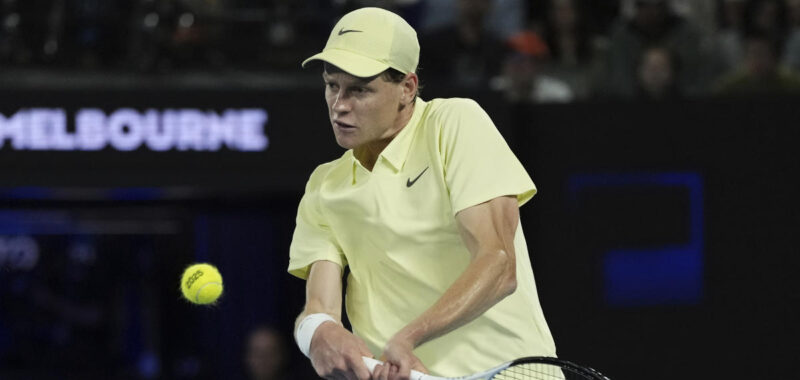World No. 1 men’s tennis player Jannik Sinner has accepted a three-month suspension as part of a settlement with the World Anti-Doping Agency following two positive doping tests last year.
The 23-year-old Sinner will be eligible to return May 4, weeks before the start of The French Open. He will not miss any Grand Slam tournaments this season.
WADA had been seeking a one-year banner for Sinner, who won his second straight Australian Open last month, after challenging the International Tennis Integrity Agency’s decision to not suspend the Italian for what the ITIA believed was an accidental contamination by a banned anabolic steroid in March.
“This case had been hanging over me now for nearly a year and the process still had a long time to run with a decision maybe only at the end of the year,” Sinner said in a statement. “I have always accepted that I am responsible for my team and realize WADA’s strict rules are an important protection for the sport I love. On that basis I have accepted WADA’s offer to resolve these proceedings on the basis of a three-month sanction.”
According to Sinner, the trace amounts of Clostebol found in his sample were due to a substance a trainer had used to treat a finger cut before giving Sinner a massage. That explanation was accepted and WADA’s appeal of the ITIA’s ruling to the Court of Arbitration for Sport was withdrawn.
“WADA accepts the athlete’s explanation for the cause of the violation as outlined in the first instance decision,” the organization said in a statement. “WADA accepts that Mr. Sinner did not intend to cheat, and that his exposure to Clostebol did not provide any performance-enhancing benefit and took place without his knowledge as the result of negligence of members of his entourage.
“However, under the code and by virtue of CAS precedent, an athlete bears responsibility for the entourage’s negligence. Based on the unique set of facts of this case, a three-month suspension is deemed to be an appropriate outcome. As previously stated, WADA did not seek a disqualification of any results, save that which was previously imposed by the tribunal of first instance.”

